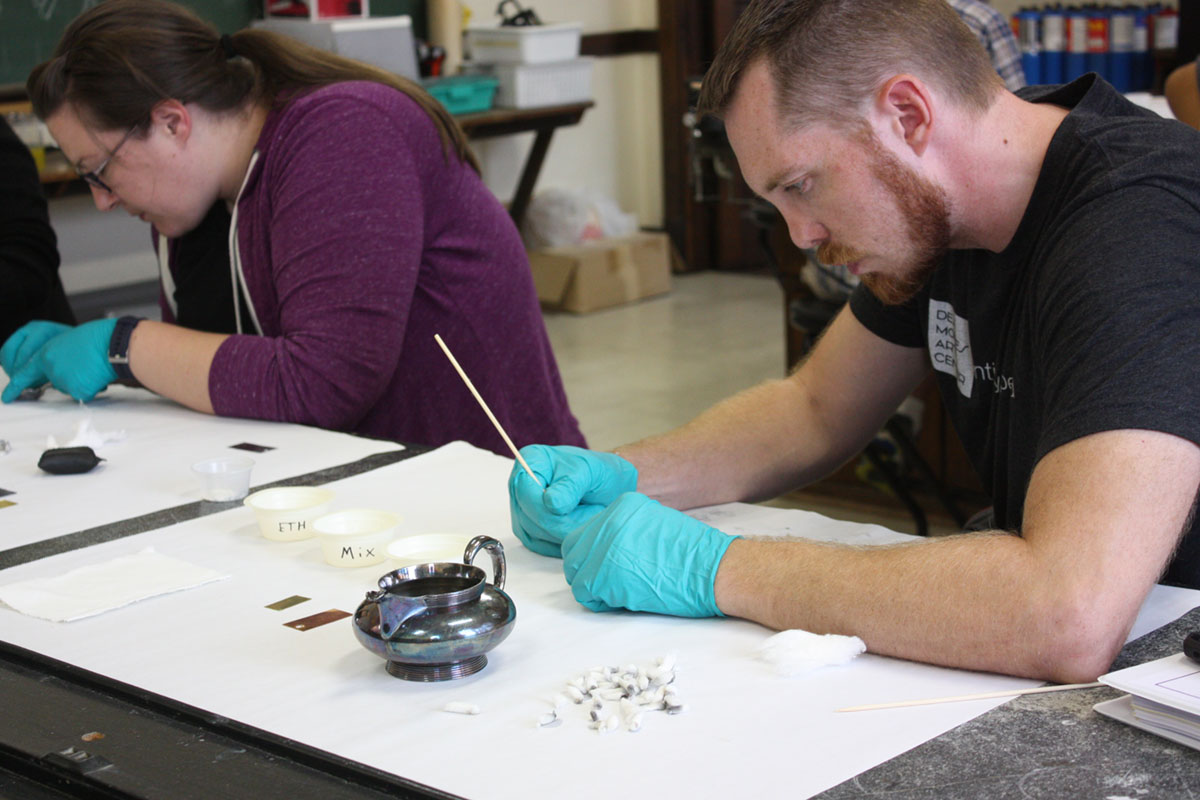Upcoming Workshops
In Person Safe Storage: Making Boxes and Mounts for Collections
This 2-day workshop will introduce a variety of stable and inert materials for use in collection storage and display. We will discuss storage enclosures and their benefits for physical protection as well as environmental buffering, air quality, air circulation, and common sources of pollution in storage areas. Working from a provided template, you will learn basic box-making skills by creating your own tool storage box, and then expand on those skills to create a custom box and support for either an example collection item from the host site, or an item you bring with you. All materials will be provided and you will leave with a starter set of box-making tools.
The workshop will be held at three different locations!
WAITLIST ONLY May 20 – 21 at the American Swedish Institute in Minneapolis, MN
May 20th: 10am-5pm
May 21st: 9:30am-4:30pm
June 10 – 11 at Prairie Island Indian Community in Welch, MN
June 10th: 10am-5pm
June 11th: 9:30am-4:30pm
June 23 – 24 at Listening Point Foundation in Ely, MN
June 23rd: 10am-5pm
June 24th: 9:30am-4:30pm
Fee: $400 Register Here
Fee for Minnesota Residents: FREE Register Here
Thanks to funds provided by the State of Minnesota from the Arts and Cultural Heritage Fund through the Minnesota Historical Society.
In Person Caring for Your Photos
This one-day, hands-on workshop will introduce the tools and materials used to care for photographs. In addition to a lecture on common photographic processes and the factors that contribute to photograph degradation, you will be invited to bring a selection of your own photographs to share, organize, and house using provided archival materials. Digitization and digital storage options will be discussed. And tours of the Hennepin County Library Special Collections department’s photograph collections will be offered during the mid-day break.
June 16 at Hennepin County Library – Minneapolis Central
9:30am-4:30pm
Fee for Minnesota Residents: FREE Register Here
Thanks to funds provided by the State of Minnesota from the Arts and Cultural Heritage Fund through the Minnesota Historical Society.
On-Demand Workshops
These one-day events can be brought directly to your institution. Contact us for more details and pricing.
Emergency Preparedness
Emergency Response: Wet Salvage
Describing What You See: Condition Reports
Art and Artifact Handling (1/2 day)
Testing for Arsenic in Collections
Museum Environments 101
Coming Soon
Check back for dates and registration!
